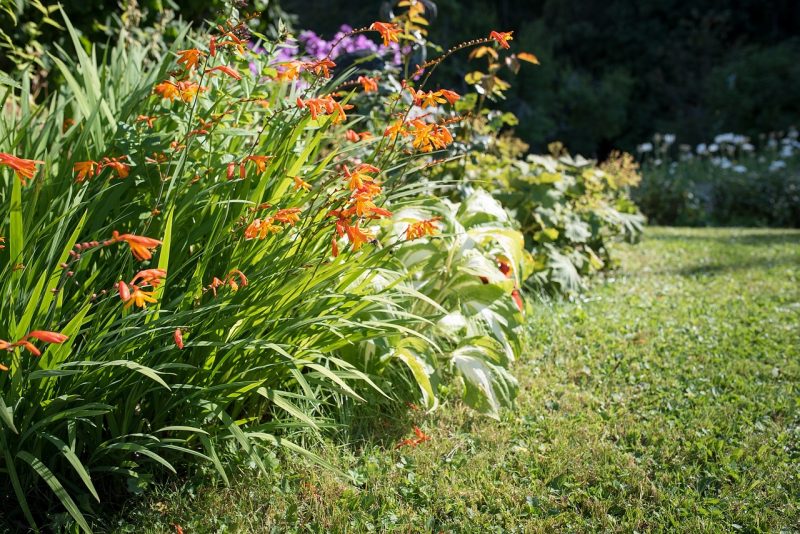Common Summer Landlord & Tenant Disputes and How to Avoid Them
Published on July 31, 2023 by Sarah Mac

With more time spent in the garden during the summer, it can spark a range of seasonal landlord and tenant disputes that may not occur during the rest of the year.
Whilst cleaning, damage, redecoration and missing items will always remain some of the most common reasons for deposit disputes, gardens can become a particular bone of contention following those warm spells that drive tenants outdoors. Here’s a look at some of the most common seasonal issues that can easily escalate into a dispute, and how to avoid them.
Garden maintenance
Garden maintenance is a common source of contention between landlords and tenants. This is usually due to the fact that tenants are not clear on their garden maintenance responsibilities under the tenancy agreement.
It is fair to assume that tenants are responsible for leaving the garden in its pre-let condition, allowing for seasonal differences. The trouble is that ‘seasonal differences’ can be misinterpreted.
If a garden is overrun with weeds, the lawns are in need of mowing and plants and bushes have become overgrown or have perished, then it is usually acceptable for the landlord to charge the tenant to put things right, as these are considered fair tasks for tenants to undertake.
It is vital for landlords to make it clear in the tenancy agreement as to what constitutes garden maintenance so that the tenant can see precisely what they are responsible for. A thorough, photographic check-in report that shows the condition of the garden at the start of the tenancy will also protect the landlord if a claim needs to be made.
Garden alterations
Tenants making changes to the garden in their rented property is another source of issue between them and their landlords.
If changes are made to a garden without first seeking the permission of the landlord, then this can constitute a breach of the tenancy agreement. Whether it’s putting up an outbuilding, laying a new lawn or patio, switching grass for paving or vice versa, or swapping natural grass for artificial turf, all of these can spark potential disputes. And if permission for the changes was not granted, it will be reasonable for the landlord to expect the tenants to cover the costs of returning the garden to its pre-let condition.
To avoid these issues, landlords should draw the tenants’ attention to the clause in the tenancy agreement that covers making alterations to the property, explaining that it applies to both the inside and outside.
If a tenant makes a request to alter the garden, it should not be unreasonably withheld, and landlords should give due consideration to whether the proposed changes would be beneficial to both parties.
Landlords are well advised to carry out regular mid-term inspections so that any unauthorised alterations can be identified before they escalate, and so they can be resolved before the tenancy comes to an end.
Paddling pools, trampolines and ball games
Paddling pools, hot tubs and trampolines can kill any grass underneath them when left in place for some time.
To avoid this, landlords are well advised to ask tenants to move items like these around regularly. In addition, if chemicals are used to treat the water in a pool or hot tub, make sure the tenants know not to pour it on any plants after use.
In terms of ball games, landlords should remind tenants to take care with windows, greenhouses and plants, as well as taking steps to avoid disturbing neighbours.
Summer pests
The warmer weather of summer brings with it a variety of issues, including a heightened risk of pests and bugs.
Failing to correctly dispose of rubbish can attract ants and mice, which can find their way indoors, so landlords should ensure tenants have adequate facilities to contain waste until such times as it is collected.
Wasp and bee infestations are common during the summer, and whilst they do not pose too much of a threat to tenants, it is good practice for landlords to arrange their removal. The costs of doing so can be covered by a landlord insurance policy.
Japanese knotweed and other invasive plants
Invasive plants such as Japanese knotweed can cause all sorts of serious issues for a property. Knotweed grows very quickly and has the ability to break through concrete and even metal. It requires professional removal and long term treatment to ensure it doesn’t return.
Landlords should educate tenants as to what to look out for in terms of invasive plants, and ask them to flag up any concerns without delay. Regular mid-term inspections will also draw attention to such problems, allowing offending plants to be identified before they grow out of control.
BBQs and garden fires
BBQs and fire pits run the risk of getting out of control, so it is important for landlords to set out strict ground rules for tenants about their use, for example:
- Keep BBQs and fire pits on a level surface, away from grass
- Never leave sources of fire unattended
- Keep a supply of water or sand nearby
- Always dispose of cinders carefully
- Never use an accelerant such as petrol
Summary
It is important for landlords to understand the risks that are part and parcel of the changing seasons, and that summer can bring a range of challenges that will need special consideration.
Communicating with tenants is vital, ensuring they are aware of their responsibilities under the tenancy agreement, and are aware of health and safety measures that will keep them, and your property, safe.
The importance of detailed check-in reports and mid-term inspections cannot be over-emphasised, in addition to ensuring there are clear seasonal and garden related clauses in the tenancy agreement which are brought to the tenants’ attention, with perhaps a friendly reminder as the warmer weather approaches.

